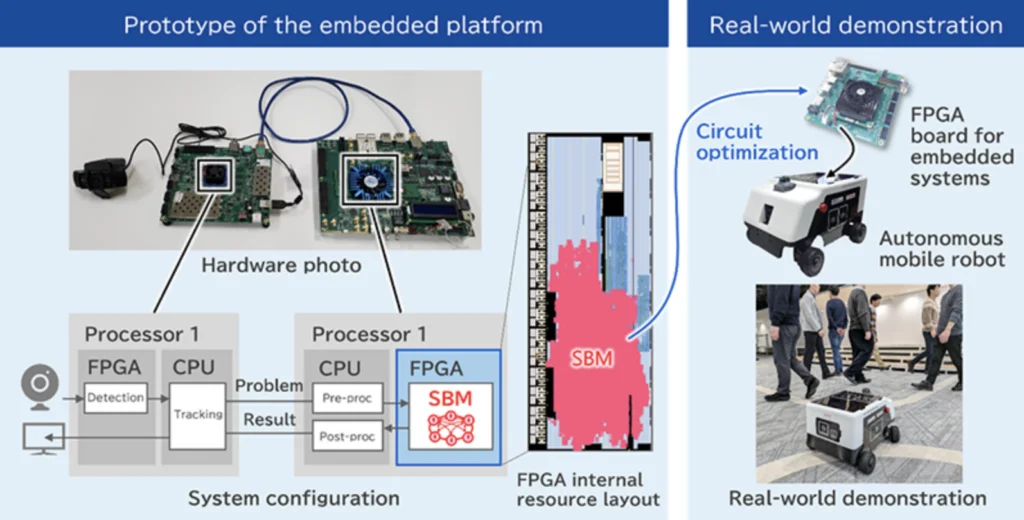Insider Brief
- QuEra Computing is advancing two of the six final projects in Wellcome Leap’s Quantum for Bio Challenge, highlighting its growing role in applying quantum computing to healthcare and drug discovery.
- The projects—one led by the University of Nottingham with Phasecraft and another by Harvard and MIT—aim to accelerate drug discovery using quantum simulations for tasks like targeting myotonic dystrophy and enhancing ligand-protein binding predictions.
- The third and final phase of the program will involve implementing quantum algorithms on real quantum hardware, with up to $2 million in funding and a focus on demonstrating tangible health-related applications.
PRESS RELEASE — QuEra Computing, the leader in neutral-atom quantum computing, today announced that two research projects in which QuEra is collaborating have advanced to the third and final phase of Wellcome Leap’s Quantum for Bio Challenge. With two of the six final projects in the world-renowned program coming from QuEra-powered research, QuEra continues to emerge as a critical quantum partner for driving breakthroughs in complex scientific fields, including healthcare and biology.
The focus of Phase One of Wellcome Leap’s Quantum for Bio Challenge was quantum algorithm development, and the technical progress and deliverables were evaluated and tracked by the Wellcome Leap Quantum for Bio Program Director and an expert internal technical team. The eight teams from the original 12 that advanced to Phase Two demonstrated a significant advance in developing quantum algorithms relevant for improving human health.
The focus of Phase Two was large-scale simulations of the developed algorithms in Phase 1 using classical high-performance computing. To complete Phase Two, teams performed a classical HPC simulation of their quantum algorithm for 30 to 40 qubits and compared the results to those obtained by the standard classical approach for the respective application.

The focus of the third and final phase is on implementing the developed algorithmic solutions on quantum computing devices. A maximum of $2 million in funding will be awarded to the fully integrated teams for Phase 3, which will span 12 months. Phase 3 technical deliverables will be evaluated and tracked by the Wellcome Leap Quantum for Bio internal team as a condition for entry to judging for prize awards.
Quantum Computing for Covalent Inhibitors in Drug Discovery
This project is led by The University of Nottingham, with partners Phasecraft and QuEra Computing. The discovery of new drugs has long been one of the most challenging tasks facing medical innovation. This project will demonstrate how this process can harness the combined power of quantum computing and classical simulation methods to tackle the crucial task of drug discovery for myotonic dystrophy, a genetic condition that causes progressive muscle weakness and wasting and often affects the electrical conduction system of the heart, breathing and swallowing muscles, bowels, and the lens of the eye and brain.
Accelerating Drug Discovery Using Programmable Quantum Simulation
The project, led by Harvard University, MIT, and QuEra, aims to develop and scalably implement quantum simulation algorithms that can accelerate computer-aided drug discovery. Biological experiments will be used to benchmark the quantum algorithms, and the project team will develop and demonstrate application pipelines that leverage quantum simulation to facilitate structure-based virtual screening. Specific research areas will include developing a pipeline for nuclear magnetic resonance (NMR) and accurate estimation of ligand-protein binding affinity.
“Advancing to Phase Three validates the potential of our approach and brings us closer to showing how quantum computing can make a tangible difference in drug discovery,” said Jonathan Hirst, a Royal Academy of Engineering Chair in Emerging Technologies and Professor of Computational Chemistry. “We’re excited to begin running on actual quantum hardware, taking this critical step toward demonstrating how next-generation technologies can address pressing medical challenges like myotonic dystrophy.”
“This next phase is where theory meets practice. With algorithms developed and tested, we now turn to the power of quantum hardware to reveal their real-world potential.” said Nathan Gemelke, co-founder and Chief Technology Strategist, QuEra Computing, “QuEra’s neutral-atom systems are uniquely suited for these workloads, and we’re honored to contribute to projects that bring quantum computing into direct contact with human health. We look forward to working closely with our partners to demonstrate what programmable quantum systems can achieve in drug discovery.”















